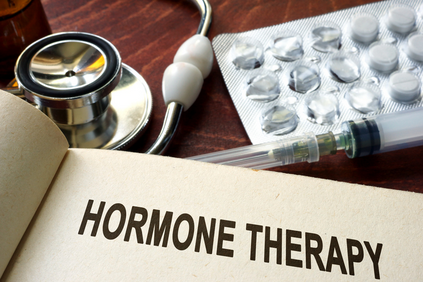Hormone therapy, a treatment used to address imbalances or deficiencies in hormone levels, has become an increasingly discussed topic in men's health. This comprehensive guide explores the various aspects of hormone therapy for men, including its purposes, benefits, risks, and considerations.
What Is Hormone Therapy?
Hormone therapy involves the use of medications to alter hormone levels in the body. For men, this typically focuses on balancing testosterone levels. Testosterone, the primary male sex hormone, plays a crucial role in various bodily functions, including muscle mass, bone density, and sexual health. When testosterone levels are too low, it can lead to symptoms such as fatigue, reduced libido, and muscle weakness. Hormone therapy aims to restore testosterone to normal levels, thereby alleviating these symptoms and improving overall well-being.
Types of Hormone Therapy for Men
Hormone therapy for men can take several forms, each with its own method of administration and effects:
- Testosterone Replacement Therapy (TRT): This is the most common type of hormone therapy for men. It involves supplementing the body with testosterone through injections, patches, gels, or pellets. TRT helps restore testosterone levels and manage symptoms associated with low testosterone.
- Oral Testosterone: Although less commonly used, oral testosterone is available. It can be effective but may have a higher risk of liver-related side effects compared to other methods.
- Testosterone Injections: Administered directly into the bloodstream, these injections can provide a rapid increase in testosterone levels. They are usually given every few weeks and are effective for many men.
- Testosterone Patches and Gels: These are applied to the skin and allow for a steady release of testosterone. Patches are worn on the skin, while gels are applied to the skin and absorbed over time.
- Testosterone Pellets: Implanted under the skin, these pellets release testosterone gradually over several months. They offer a long-term solution but require a minor surgical procedure for insertion.
Benefits of Hormone Therapy
Hormone therapy can offer numerous benefits to men experiencing low testosterone levels. These benefits include:
- Improved Energy Levels: Many men report increased energy and reduced fatigue after starting hormone therapy. This can lead to enhanced productivity and a better quality of life.
- Enhanced Mood: Low testosterone levels are often linked with mood swings, depression, and irritability. Restoring testosterone levels can help stabilize mood and improve mental well-being.
- Increased Muscle Mass: Testosterone plays a key role in muscle development. Hormone therapy can help increase muscle mass and strength, contributing to overall physical health.
- Improved Sexual Function: Low testosterone can lead to reduced libido and erectile dysfunction. Hormone therapy often results in improved sexual drive and function.
- Better Bone Health: Testosterone is important for maintaining bone density. Hormone therapy can help prevent bone loss and reduce the risk of osteoporosis.
Risks and Side Effects
While hormone therapy can be beneficial, it also carries potential risks and side effects. It’s essential to be aware of these before starting treatment:
- Cardiovascular Risks: Some studies suggest that hormone therapy may increase the risk of cardiovascular events such as heart attacks and strokes. Regular monitoring and consultations with a healthcare provider are crucial.
- Prostate Health: Elevated testosterone levels can affect prostate health. Men undergoing hormone therapy should be regularly screened for prostate issues, including benign prostatic hyperplasia (BPH) and prostate cancer.
- Sleep Apnea: Hormone therapy can potentially exacerbate sleep apnea, a condition where breathing stops and starts during sleep. This may require additional treatment or monitoring.
- Skin Reactions: Testosterone patches and gels can cause skin irritations or rashes. Proper application and monitoring can help mitigate these issues.
- Mood Swings and Behavioral Changes: Some men may experience mood swings or behavioral changes as a result of hormone therapy. These should be discussed with a healthcare provider to manage any adverse effects.
Considerations Before Starting Hormone Therapy
Before beginning hormone therapy, several factors should be considered:
- Diagnosis and Evaluation: A thorough evaluation by a healthcare provider is necessary to determine if hormone therapy is appropriate. This involves blood tests to measure testosterone levels and assess overall health.
- Personal Health History: Your medical history, including any existing health conditions, will influence the suitability and type of hormone therapy. Conditions like heart disease or prostate issues need to be carefully evaluated.
- Treatment Goals: Discuss your goals and expectations with your healthcare provider. Understanding what you hope to achieve with hormone therapy will help tailor the treatment plan to your needs.
- Monitoring and Follow-Up: Regular follow-up appointments are essential to monitor the effects of hormone therapy and make any necessary adjustments. This ensures that the therapy is effective and minimizes risks.
- Lifestyle Changes: Alongside hormone therapy, adopting a healthy lifestyle—including regular exercise and a balanced diet—can enhance the effectiveness of the treatment and contribute to overall health.
Conclusion
Hormone therapy for men offers significant potential benefits for those with low testosterone levels, including improved energy, mood, and sexual function. However, it is not without risks, and careful consideration is necessary before starting treatment. A thorough evaluation by a healthcare provider, ongoing monitoring, and a clear understanding of personal goals are crucial for maximizing the benefits and minimizing the risks of hormone therapy. By making informed decisions and working closely with a healthcare professional, men can achieve better health and quality of life through effective hormone management.





Comments